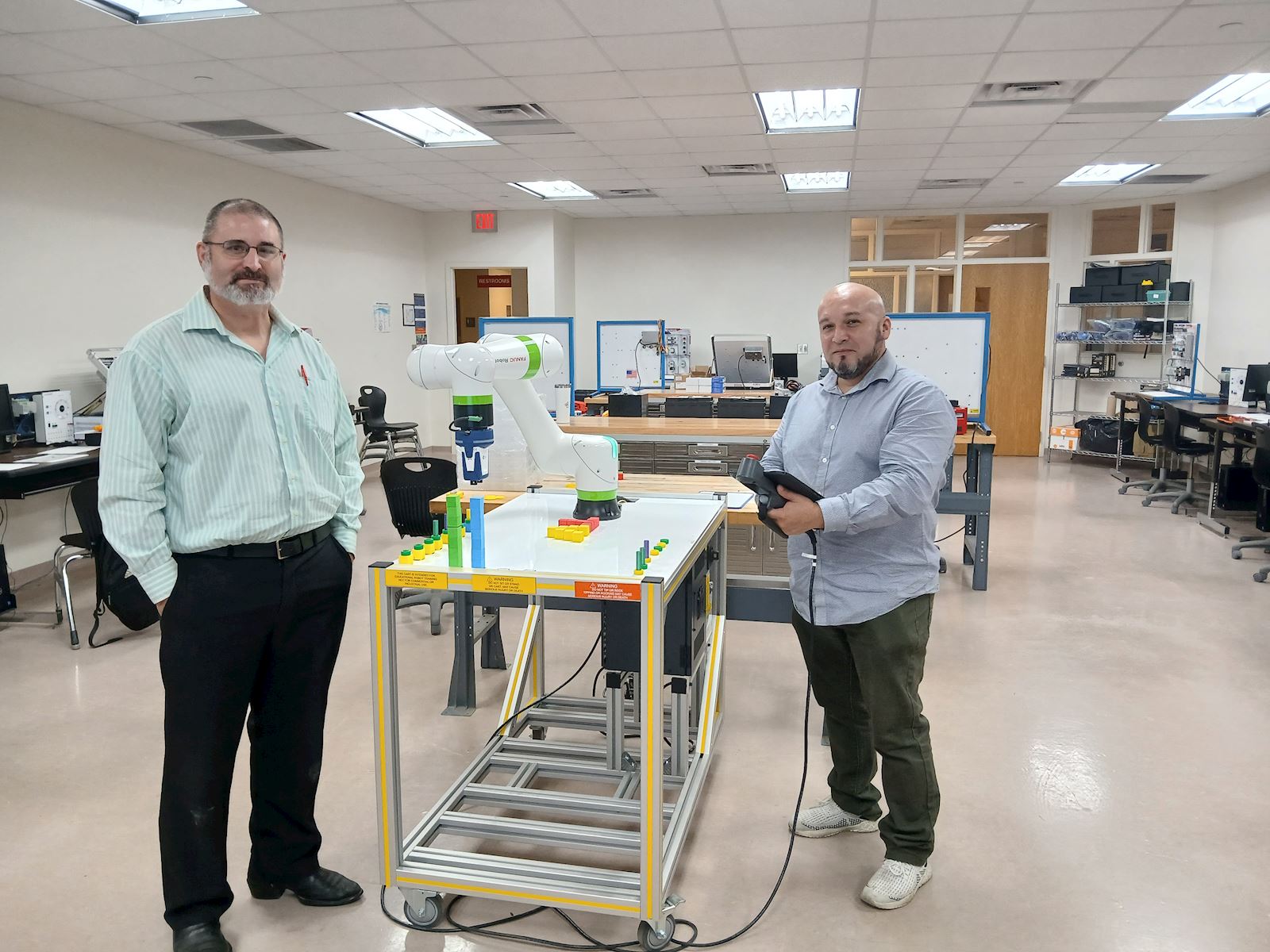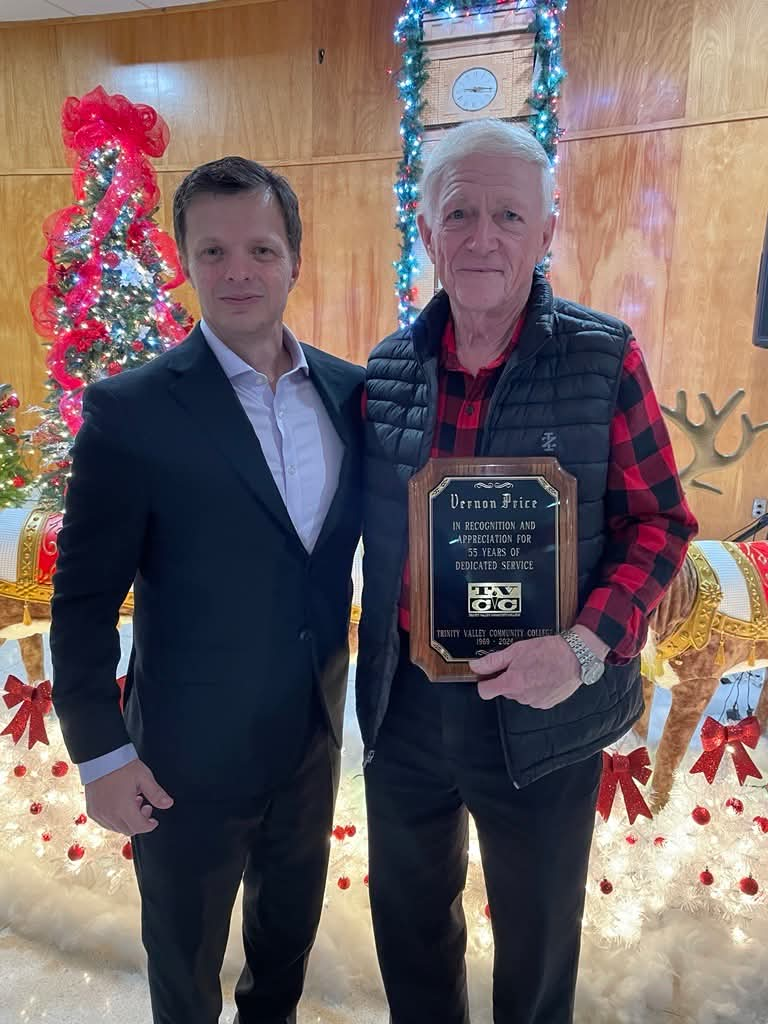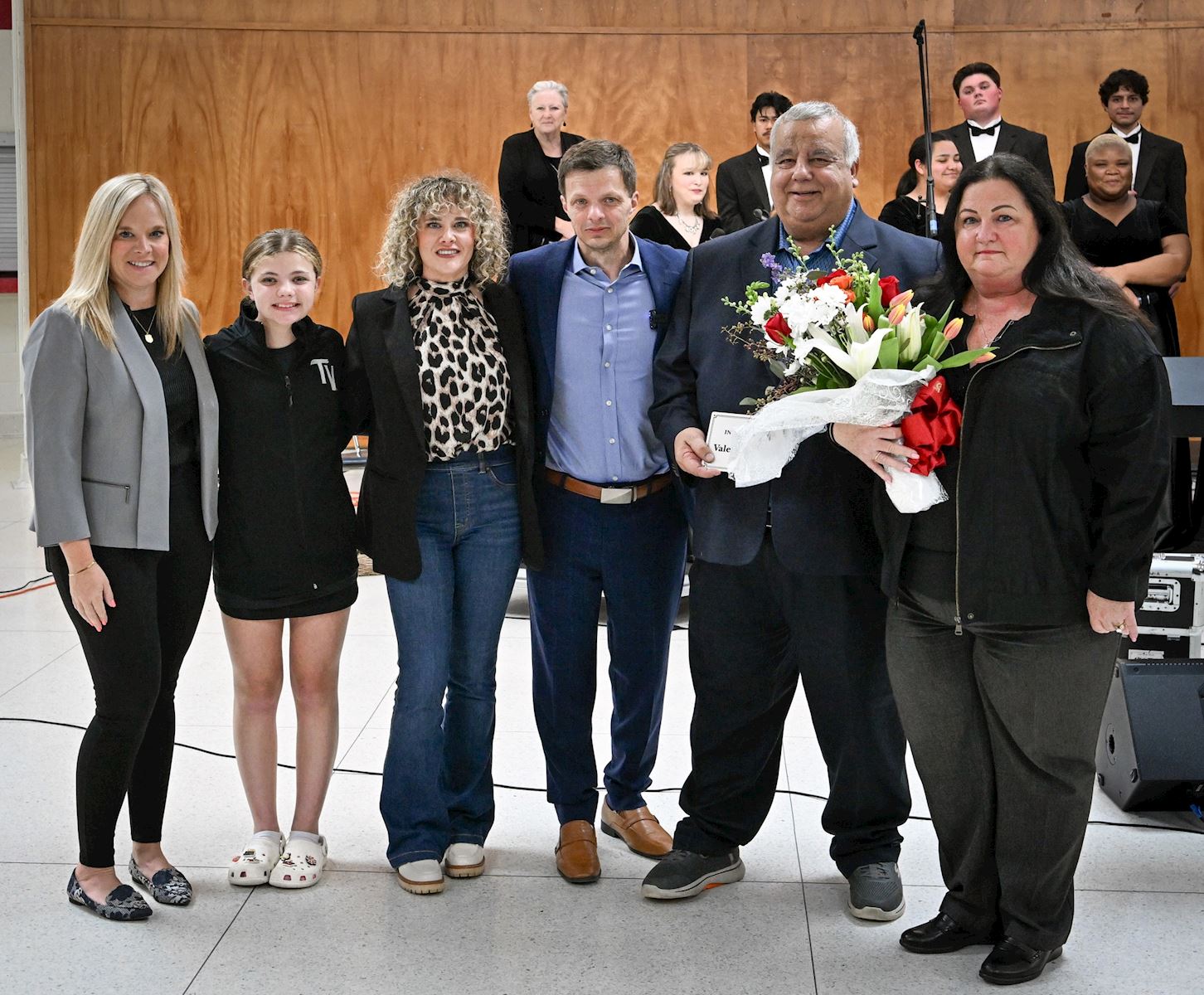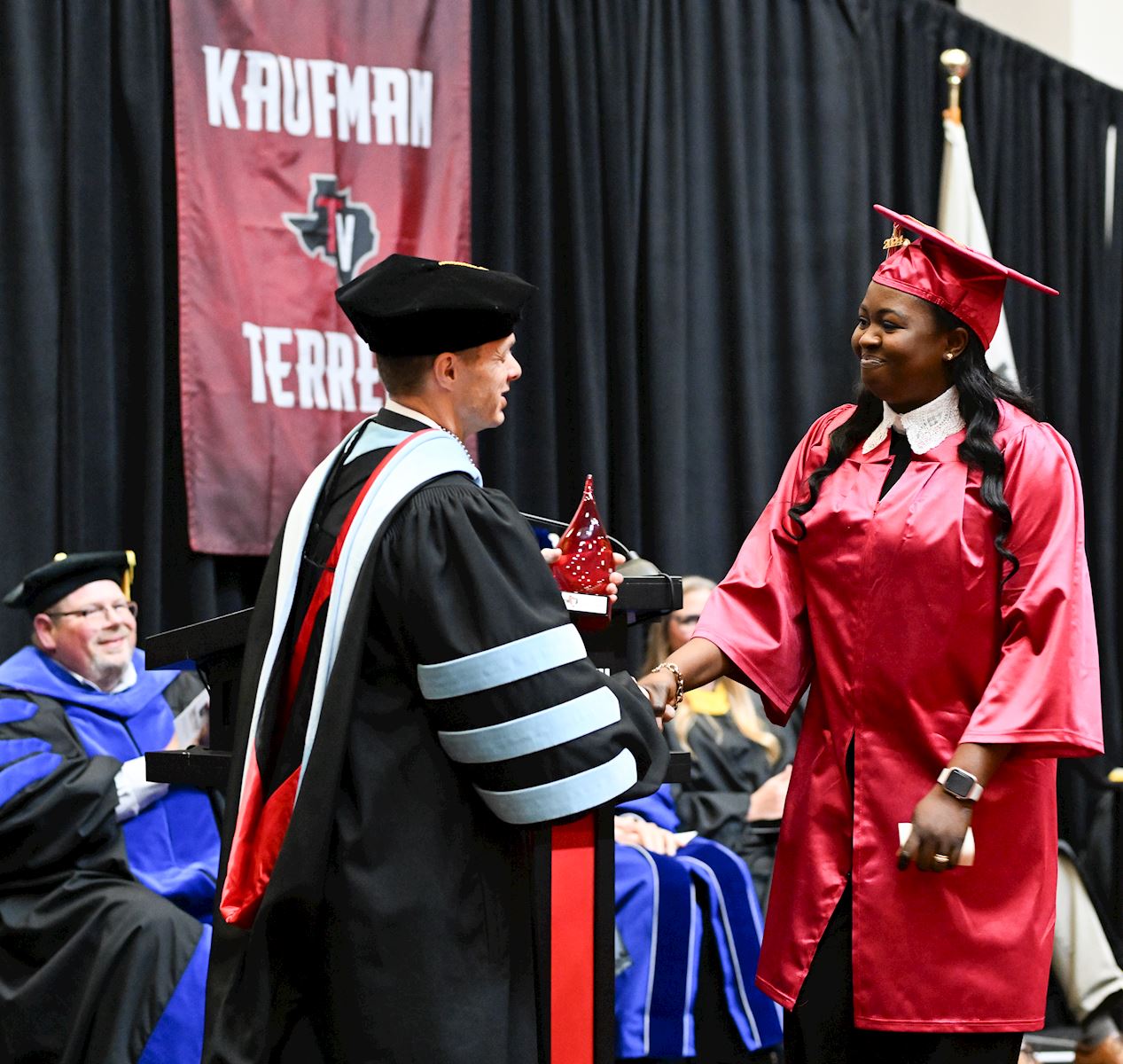TVCC Launches Automation Training Program to Meet Local Industry Demand

Responding to the demand from local industries for skilled automation, robotics, and maintenance technicians, Trinity Valley Community College has launched its Automation Training Program.
“At TVCC, we’re aligning student training with industry needs and offering pathways for our students to well-paying technical careers, while providing industry leaders with informed and experienced technicians” Automation Training Instructor Ronn Herod shared.
When meeting industry leaders and corporate partners, TVCC leadership took their needs into consideration and designed a program that met their specific needs.
“It makes sense to supply the needs of not only the workforce but the leaders in our communities,” Associate Vice President of Workforce Education Richard Crosby explained. “We understand the industry leaders want to keep their talent local and we are working to make that happen.”
The program offers a well-rounded curriculum that builds skills progressively over two semesters. Students who complete the program can earn an Occupational Skills Award, which can push a student into immediate employment, or a certificate of completion. TVCC is planning to expand the program to support students who wish to pursue an associate’s degree in automation.
Automation is all about machines and technology performing tasks automatically, often taking on repetitive or challenging jobs. While some roles are replaced by automation, it also creates new job opportunities as production scales up. The growth in automation means an increased need for more plants, facilities, and the trained technicians required to run them, Herod explained. That’s where the TVCC program comes in.
“Automation isn’t new—it’s been a staple in industry for decades,” Herod said. “My journey started in 1999, learning about Programmable Logic Controllers (PLCs) in the Navy. Today, PLCs are still fundamental, but robotics have taken off, especially in automotive manufacturing. Robots are ideal for tasks that are repetitive, dirty, or require high precision—roles that often see high turnover because people find them unfulfilling. As robotics becomes more prevalent, we need technicians to manage and maintain these systems.”
The program covers essential areas such as basic electrical theory, motor control, PLCs, industrial robotics, basic fluid power, including hydraulics and pneumatics, and vision systems.
“We go beyond the basics in this program!” Herod exclaimed.
As part of the program, TVCC students learn to work with PLCs, analyze circuit boards, and perform board-level repairs. This knowledge helps cut down on waste and reduces costs by enabling repairs rather than replacements. As automation expands, even in residential applications like smart homes, knowing PLCs and robotics offers versatility. These skills apply not only to industrial settings but also to fields like HVAC and biomedical equipment repair. The program is designed to prepare students for high-demand careers, Herod noted.
“Companies like Walmart and Sanderson Farms in Palestine offer competitive wages for skilled automation technicians, and in Athens, local employers are eager to hire trained professionals,” Herod added.
Herod emphasizes not only hands-on education in his classroom but also building students’ confidence.
“The most important takeaway isn’t just technical knowledge—it’s confidence,” he shared. “Many students feel intimidated and worry about troubleshooting complex issues. My goal is to show them that with the right skills, any problem can be solved.”
According to Herod, being a skilled technician is as much about mindset as it is about skill.
“It’s about thinking, ‘If someone built it, I can fix it,’” he explained. “We focus on reading schematics, understanding systems, and developing an analytical approach to problem-solving. Students leave this program not only with hands-on skills but also with the confidence to tackle any challenge in the field.”
Herod sees his role as guiding students toward independent problem-solving.
“Through recorded lectures and class materials, I make sure students with jobs or other obligations can keep up,” he said. “By listening to lectures in advance, they come to class ready to dig deeper and tackle complex issues, prepared to take on anything they encounter in the field.”
TVCC Automation Training student Gustavo Chavez shared his appreciation for Herod’s dedication to his students and providing extra support when needed.
“It’s great to have an instructor who works around my schedule and makes sure I get both the education and hands-on training I need while managing my other responsibilities, like my family and my job at Kroger,” Chavez expressed.
Herod encourages any student interested in robotics or automation training to consider his classes, emphasizing that the primary requirement is a genuine desire to learn.
“The more effort a student puts in, the more they’ll get out of the class, and the better they’ll perform,” he said. “As an instructor, I want to provide every tool possible to help my students succeed. I tell them, ‘I’ll give you everything I can to support you, but the one thing I can’t give you is the drive to learn. That’s something you need to bring.’ If you come with interest, motivation, and a desire to succeed, I’ll give you every resource I can ensure your success. The goal here is to develop skilled technicians who are confident and know exactly what they’re doing.”
Students interested in learning more about the program or applying to start their career in Automation Training, can reach out the Trinity Valley Community College Workforce Education at workforceEd@tvcc.edu or 903-675-6232.


.jpg)






